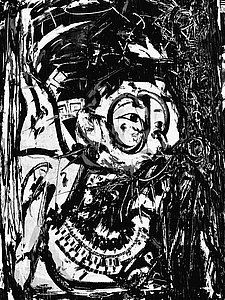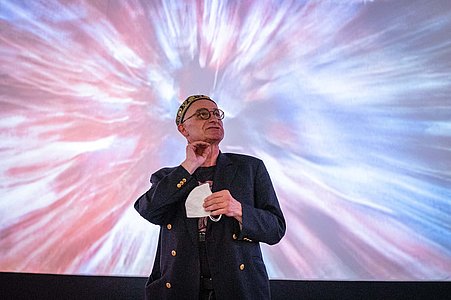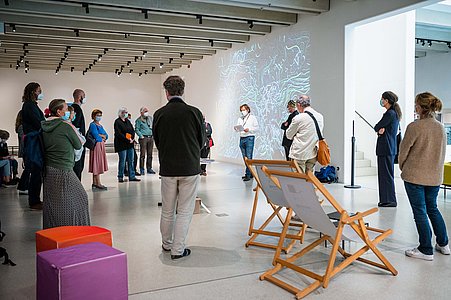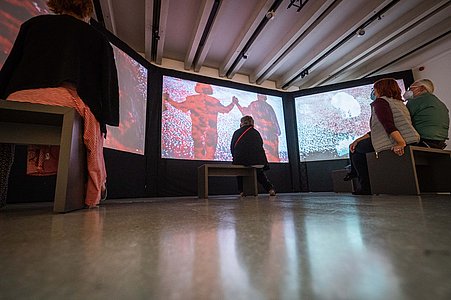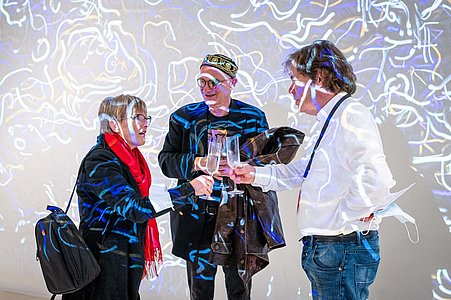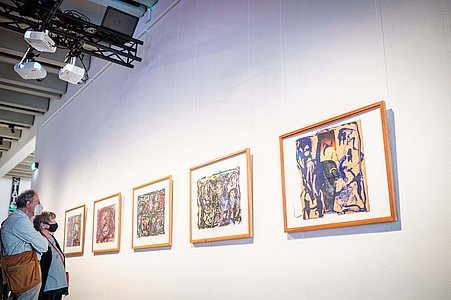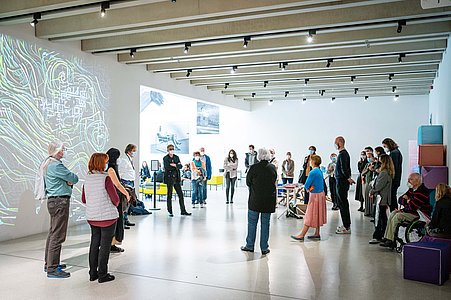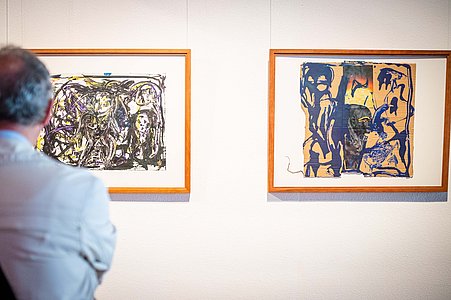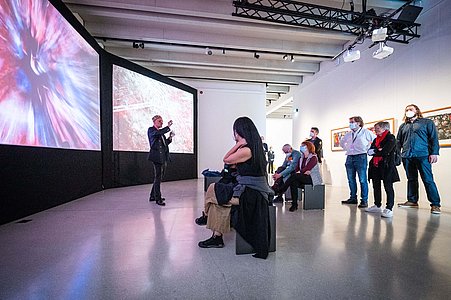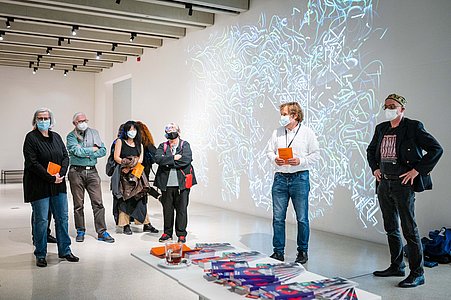What would we like to see when we close our eyes for the last time? In Faust Sonnengesang (Faust Song of the Sun), the endangered knowledge of different, often older cultures is brought to us through translations and re-workings of
ancient texts, colliding with impressions of the present and our own lives and experiences.
Figuratively and literally, this in-
stallation resembles an unfurling fist (which translates as ‘Faust’ in German), with each finger connecting to a different continent. Mephista and
Mephisto help Faust — who represents the audience — gain access to the ‘realm of mothers’, a collective, global memory. Five triptychs of 20 – 30 minutes each show images from five continents on three screens: on the left, under the sign of Mephista,
the oldest images and sounds of the respective culture; on the right,
under the sign of Mephisto, images and sounds of the apocalyptic present; and in the middle, under the sign of Faust, torn between chronos and kairos, the poetic synthesis. Stylistically linked through the handaxe
style, in which the camera spans 50,000 years of pictorial history while being wielded like a handaxe (or ‘Faustkeil’ in German), the image in the film unfurls into painting and sculpture.
Faust Sonnengesang is a continuation of the cinematic exploration into the worlds between image and language by author Werner Fritsch, who has received many awards for his work. He transforms the Faustian search for the moment that is meant to linger into a journey of associations to regions near and far, to the recent and distant past.
MUSIKALISCHE LEITUNG — Jan Tomasz Adamus
SOLISTIN — Natalia Kawalek
MIT CAPELLA CRACOVIENSIS
FÖRDERUNG — Mehrjahresprogramm »Unabhängiges Polen 2017 – 2022« im Rahmen des Stipendienprogramms des Adam-Mickiewicz—Instituts »Kulturbrücken«
